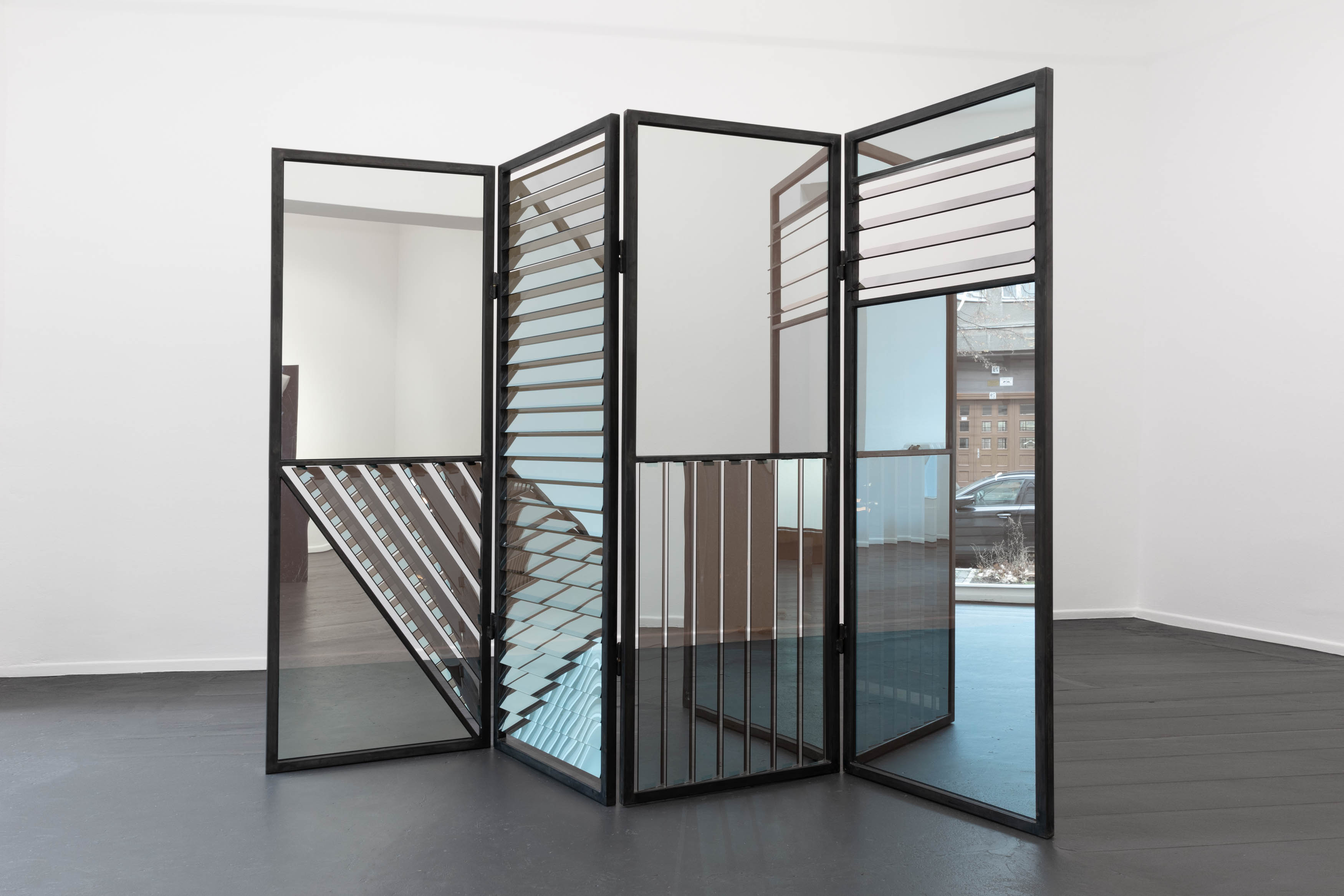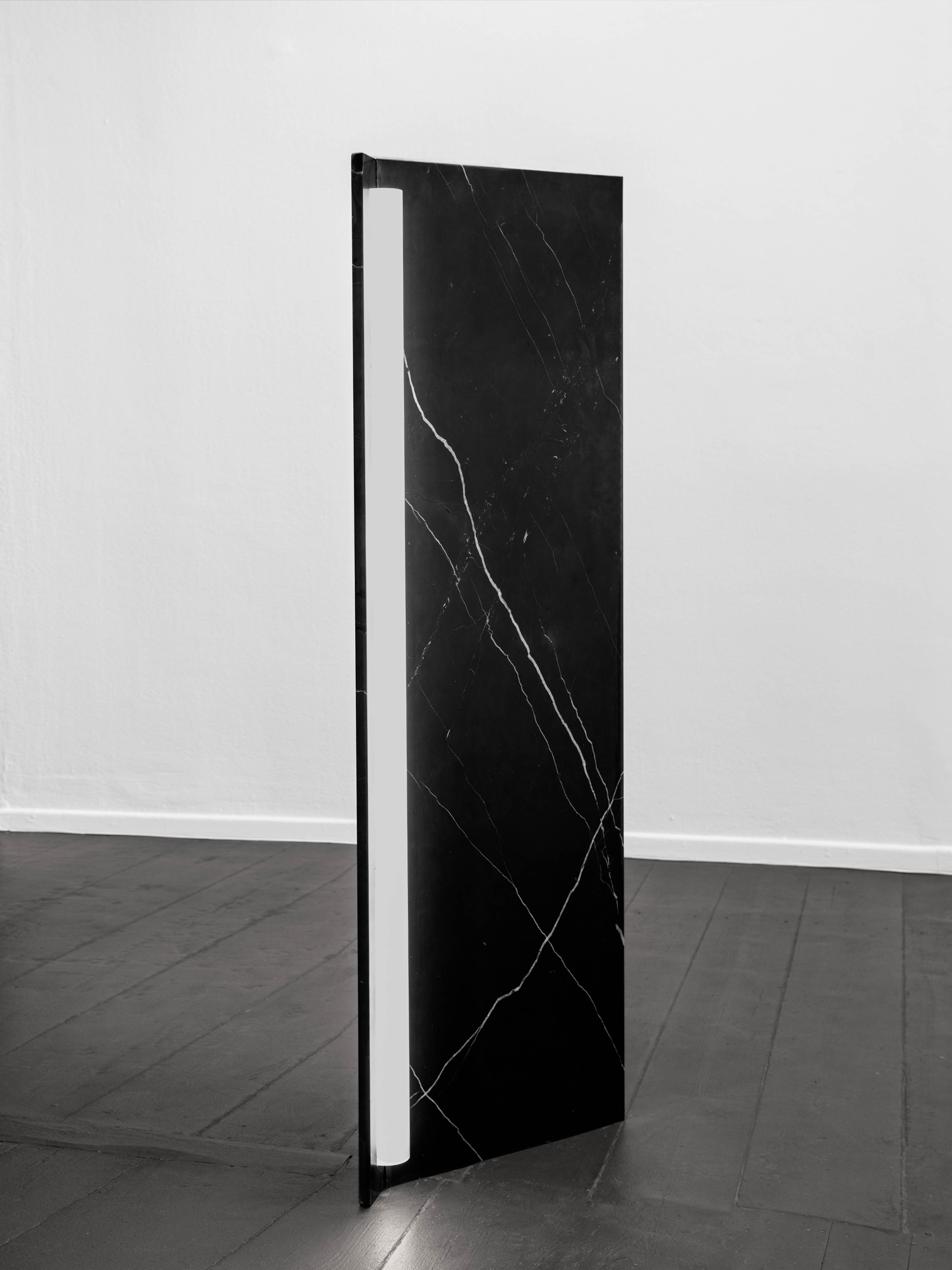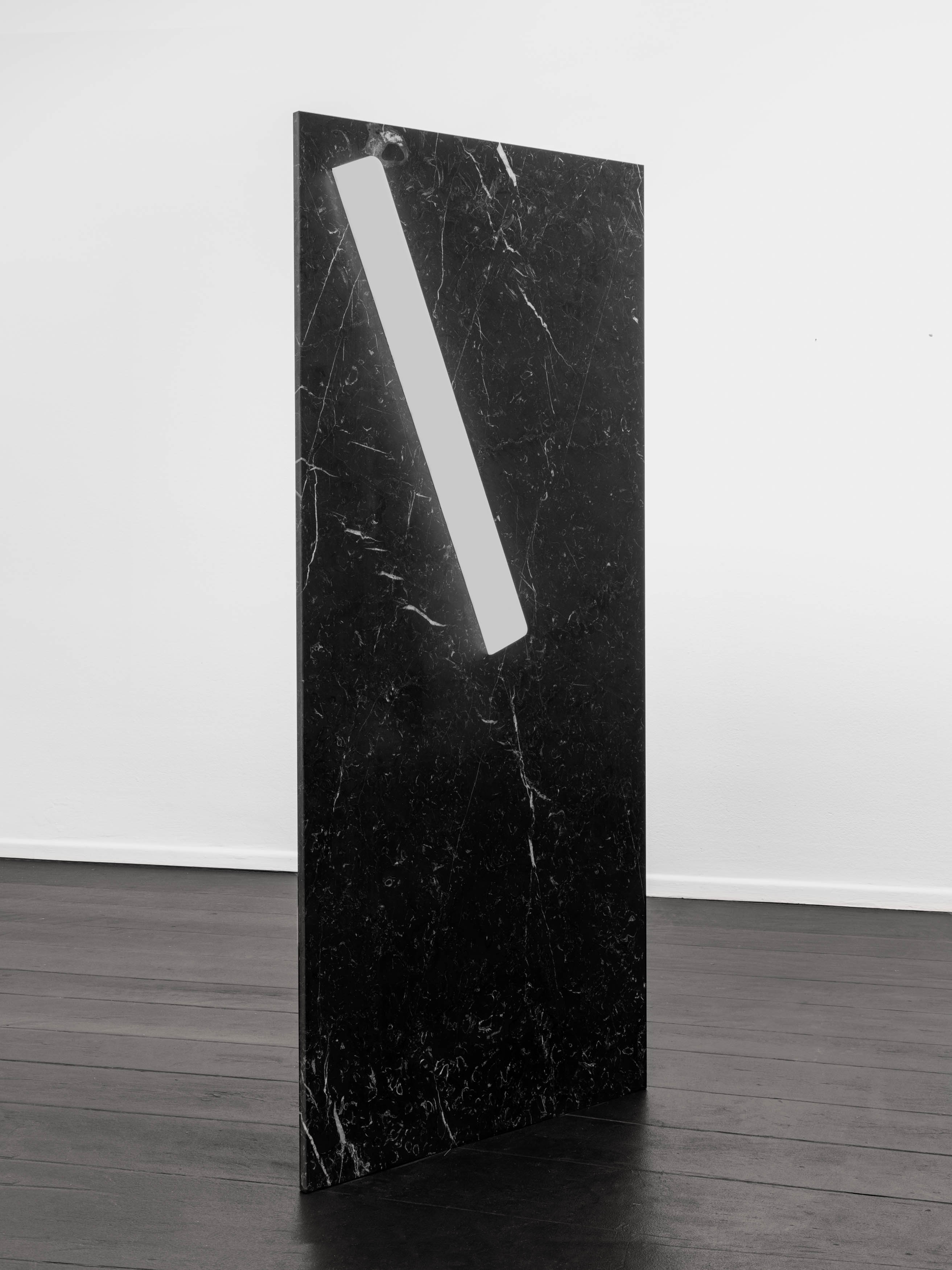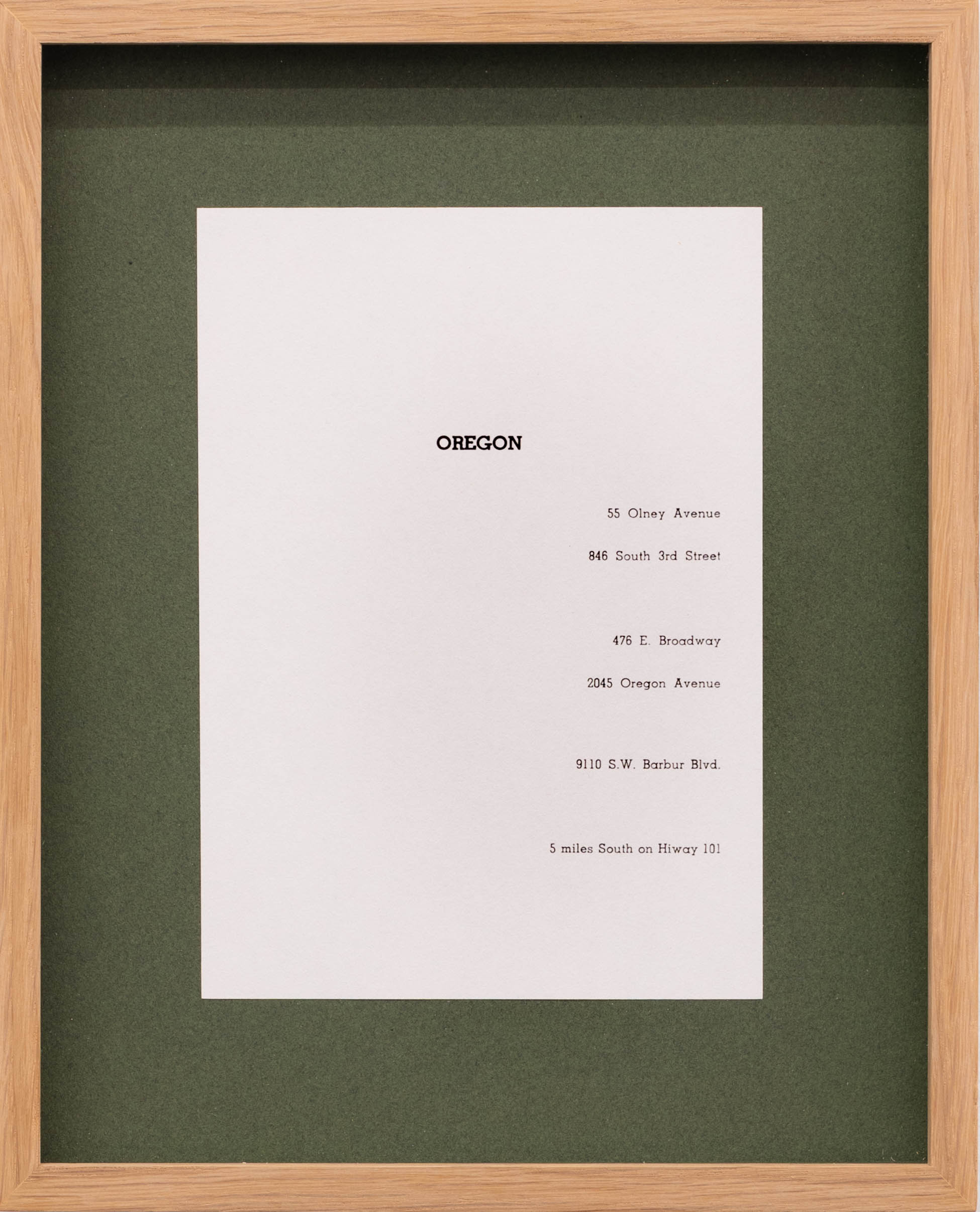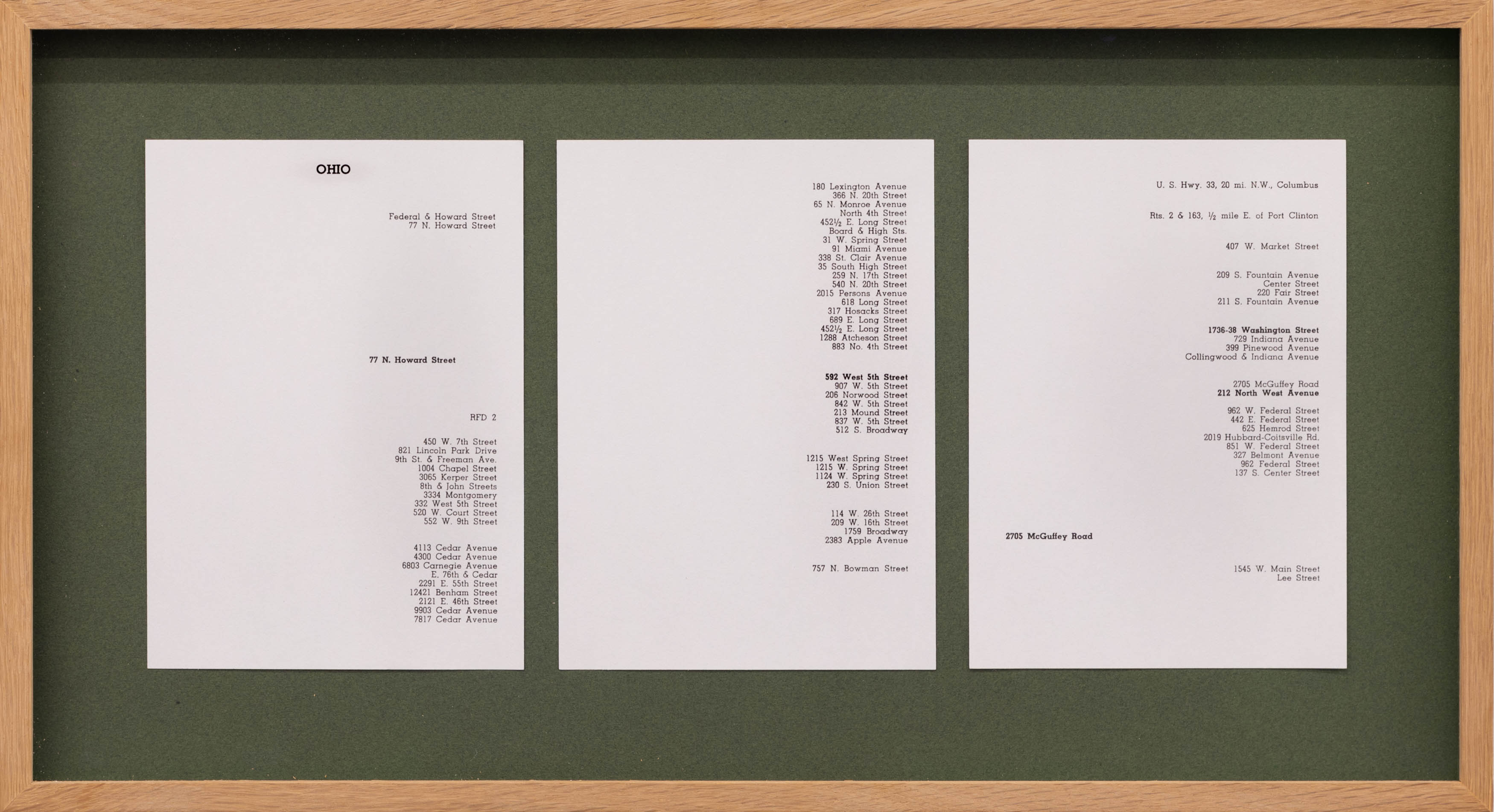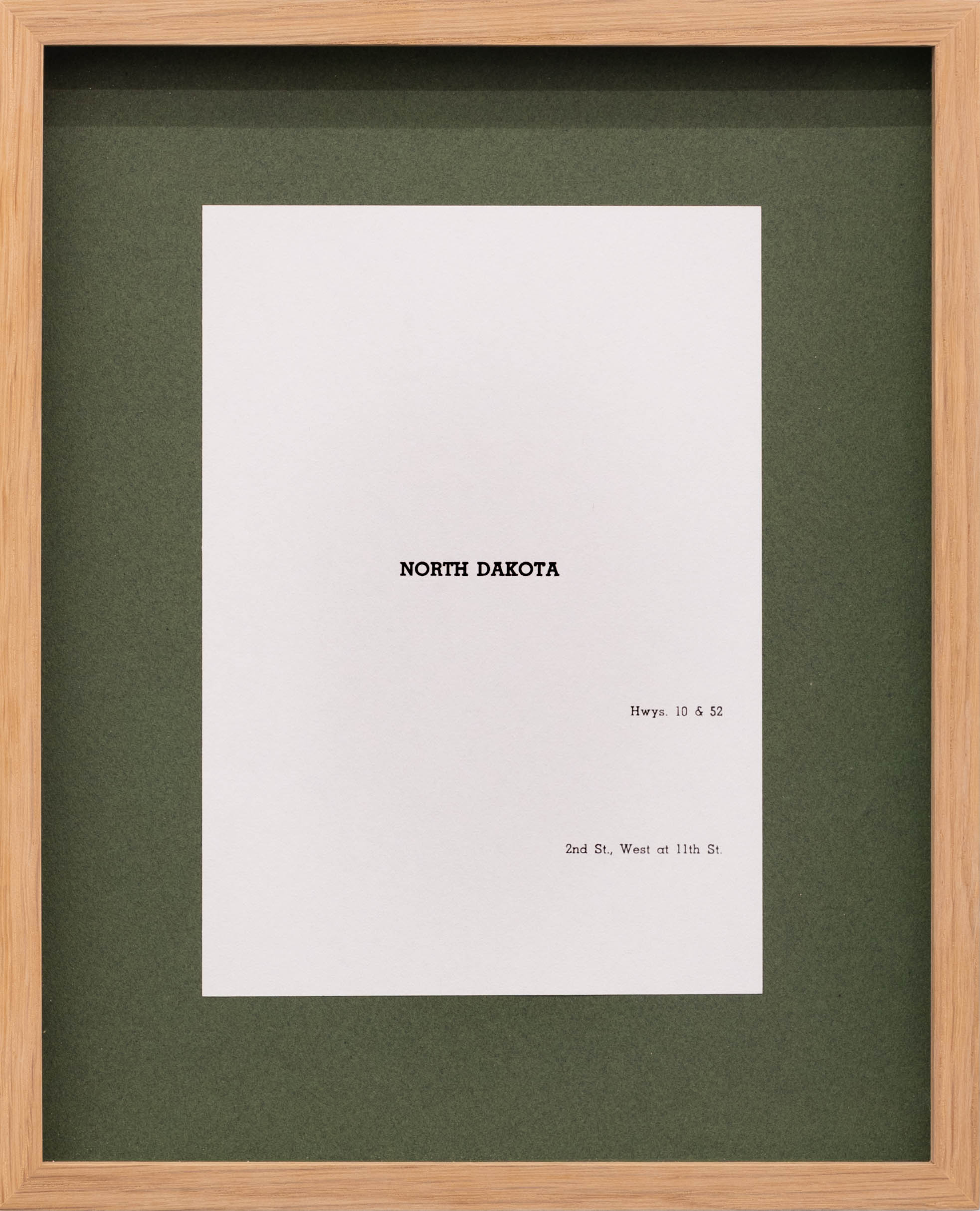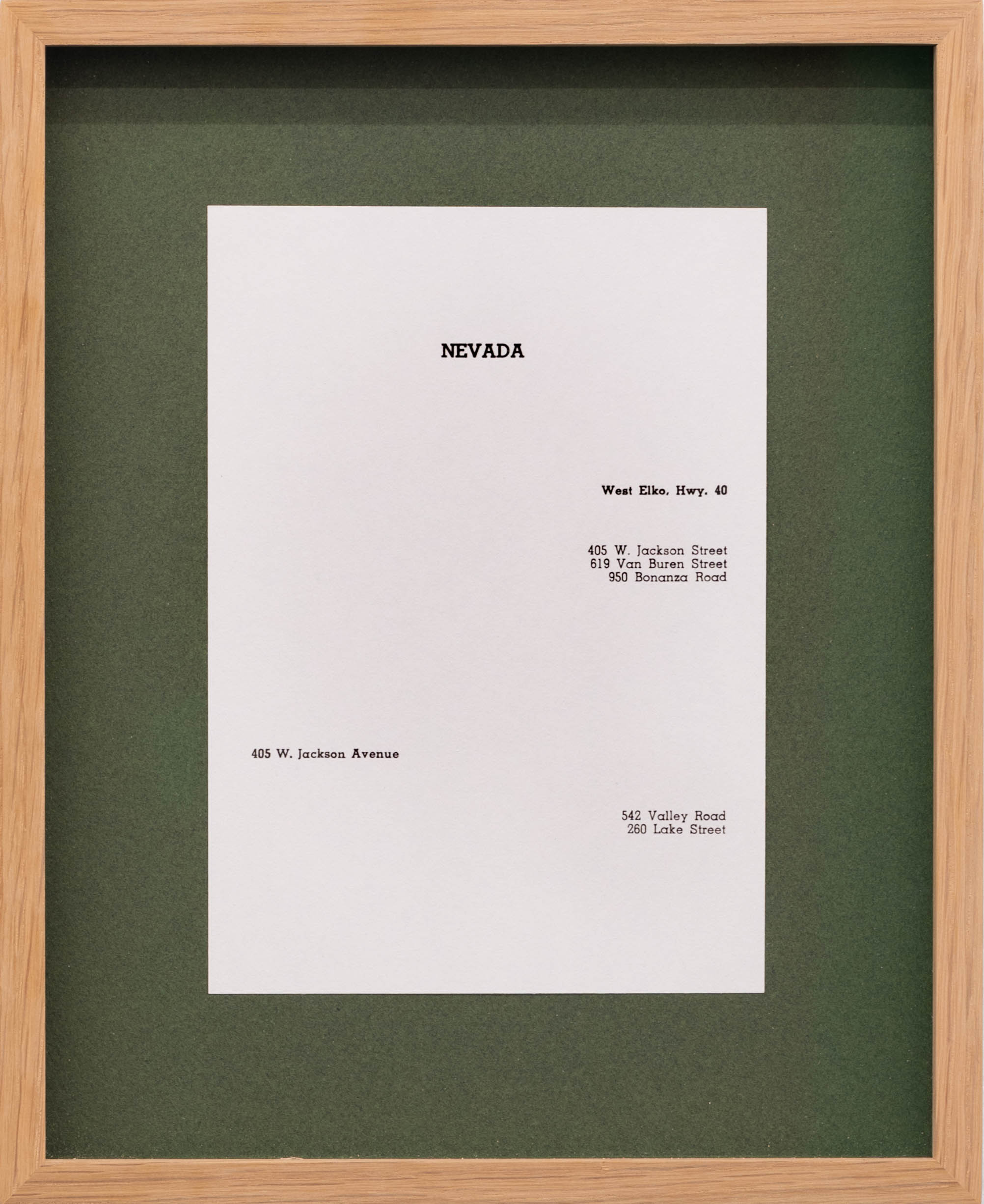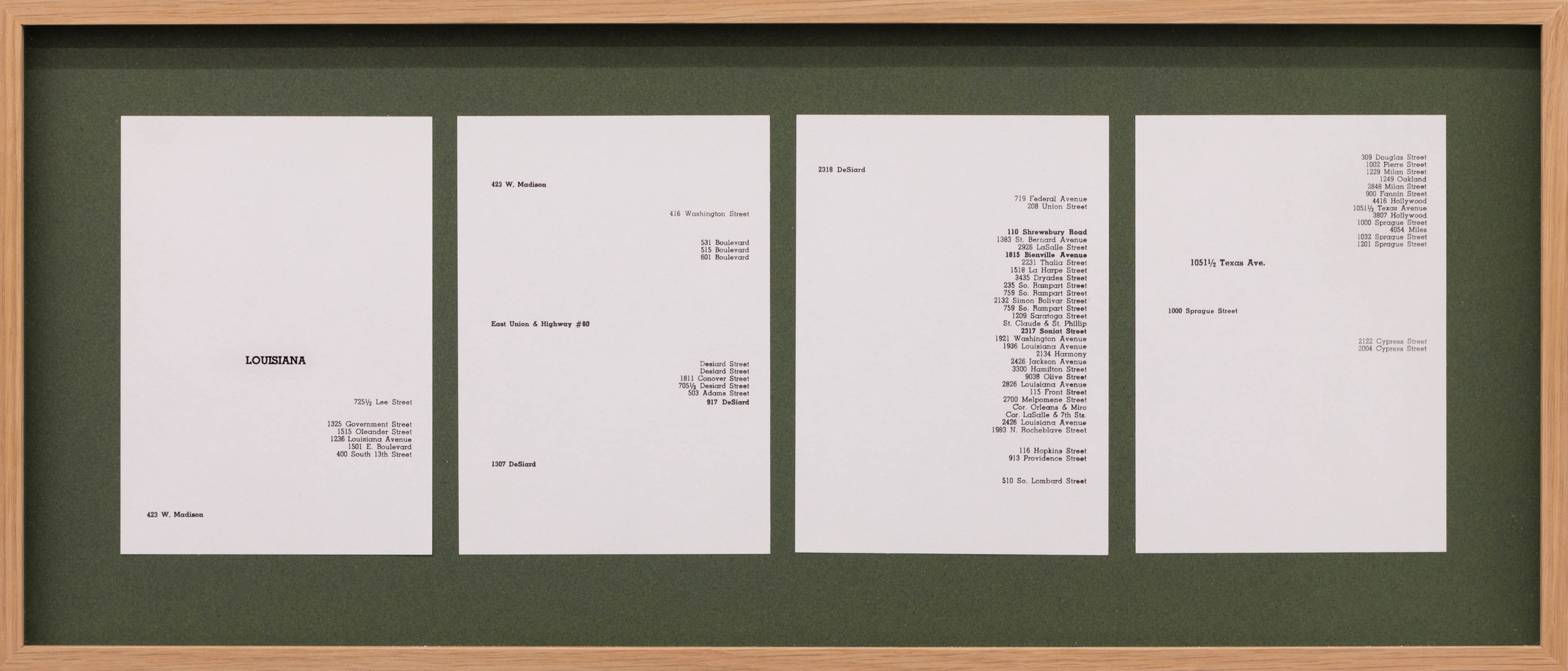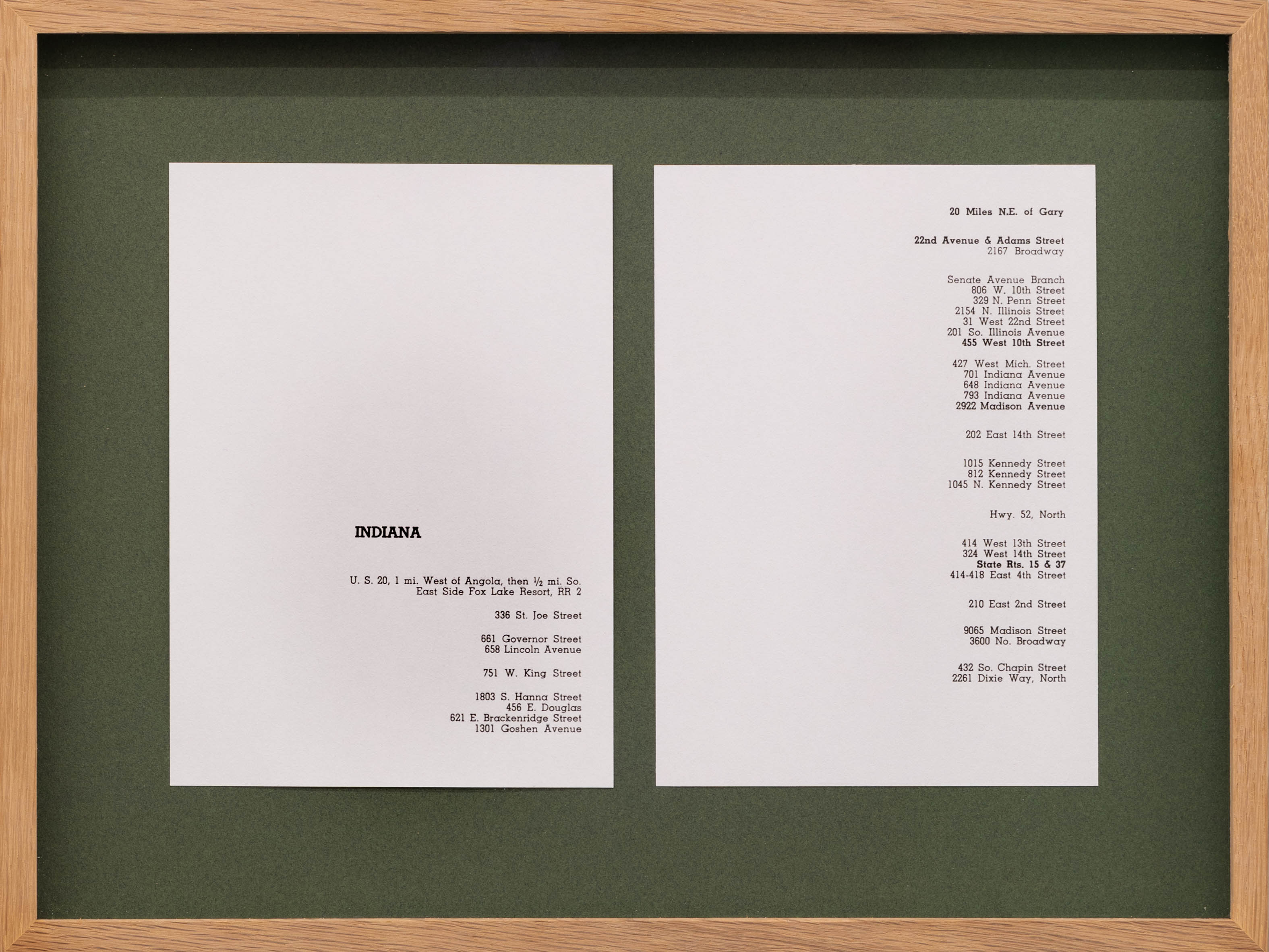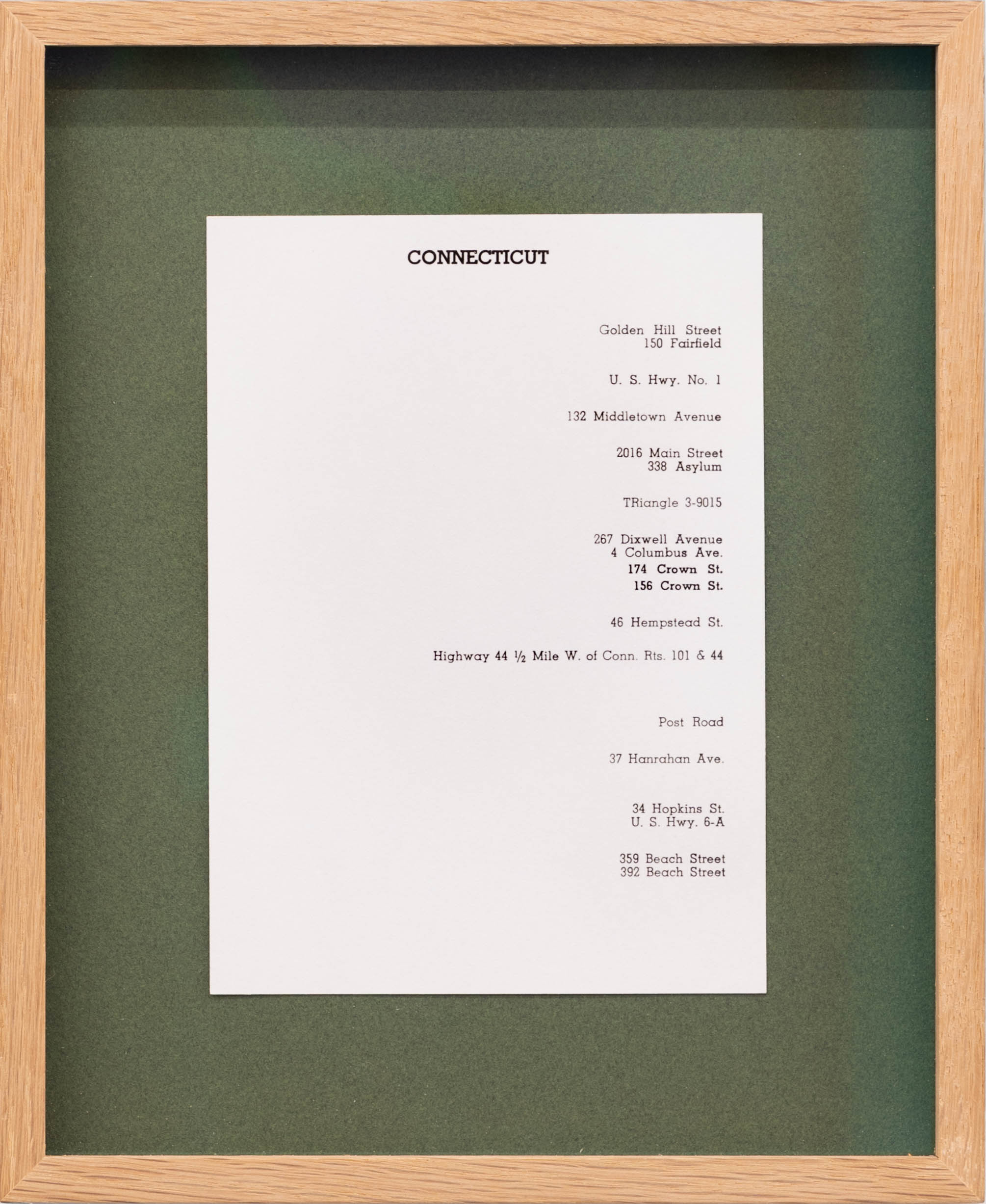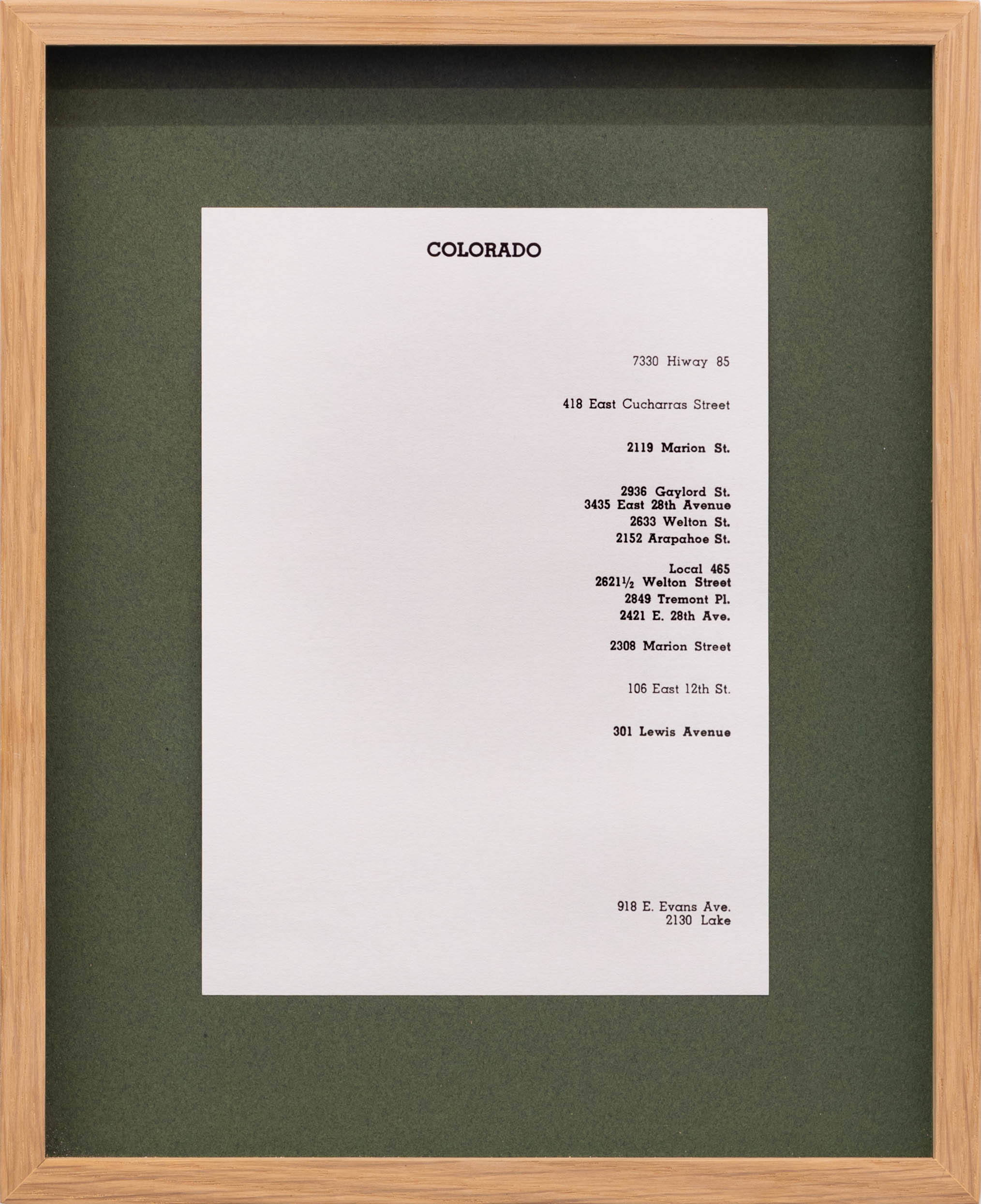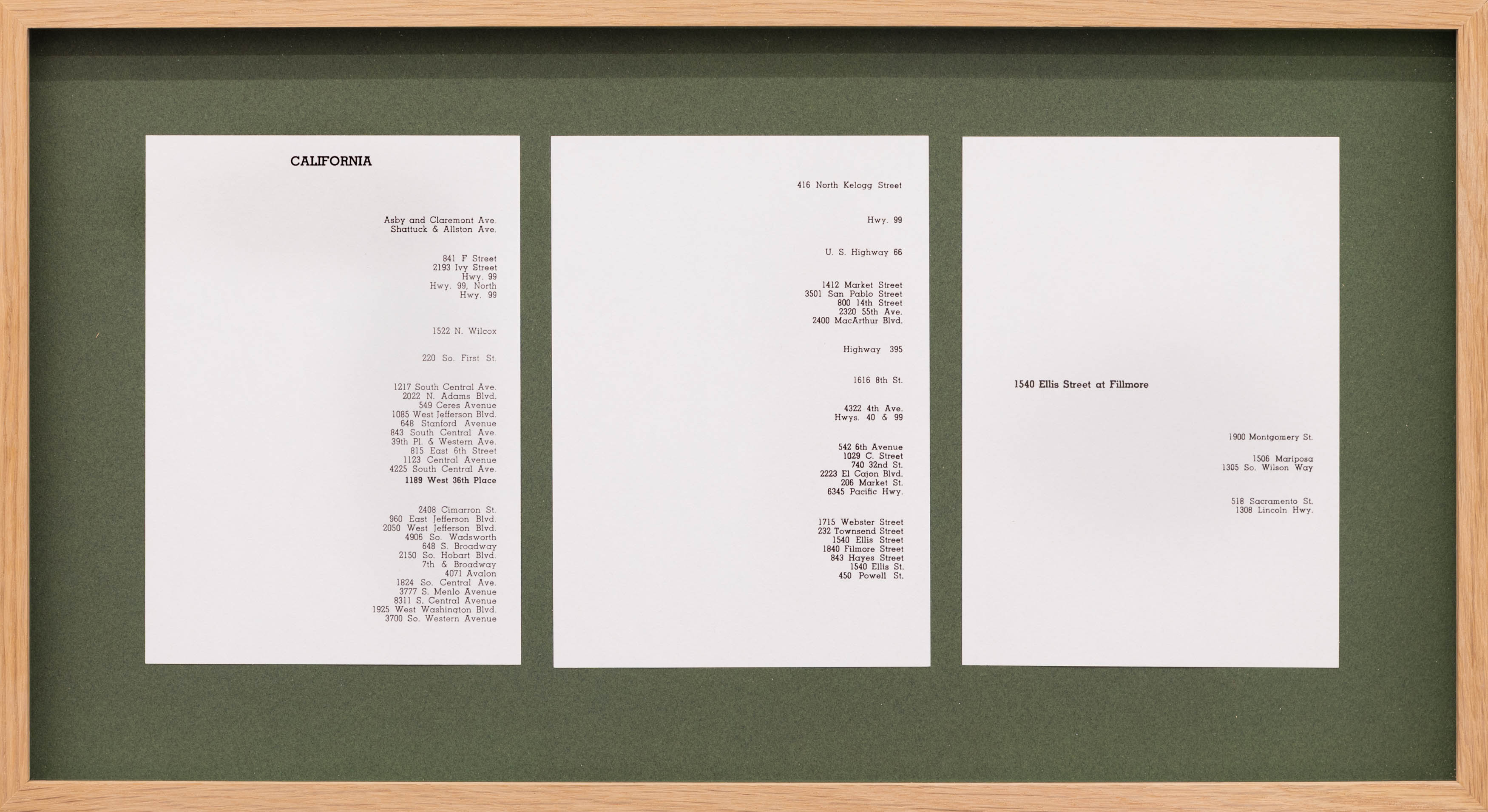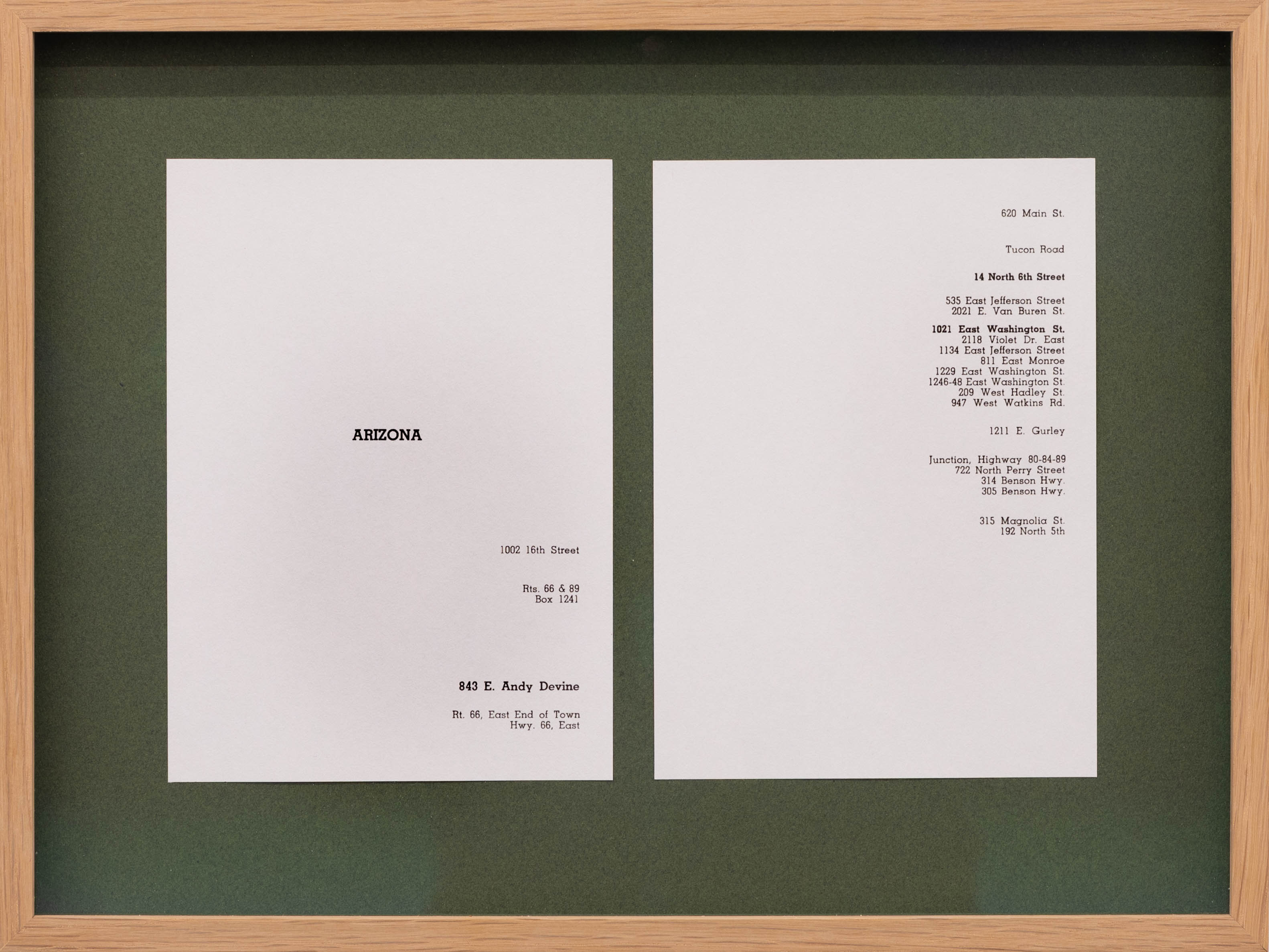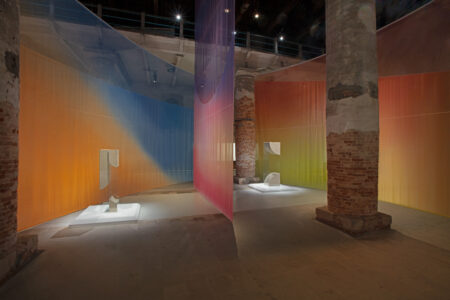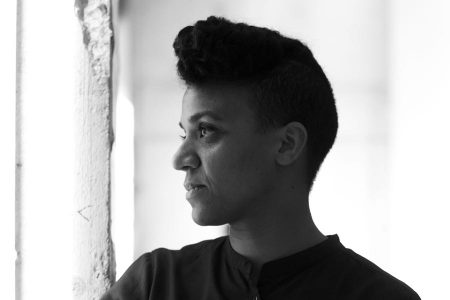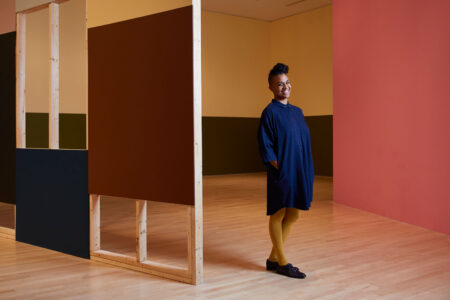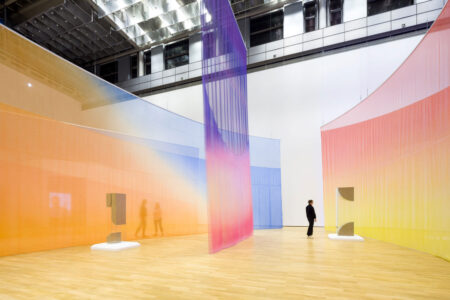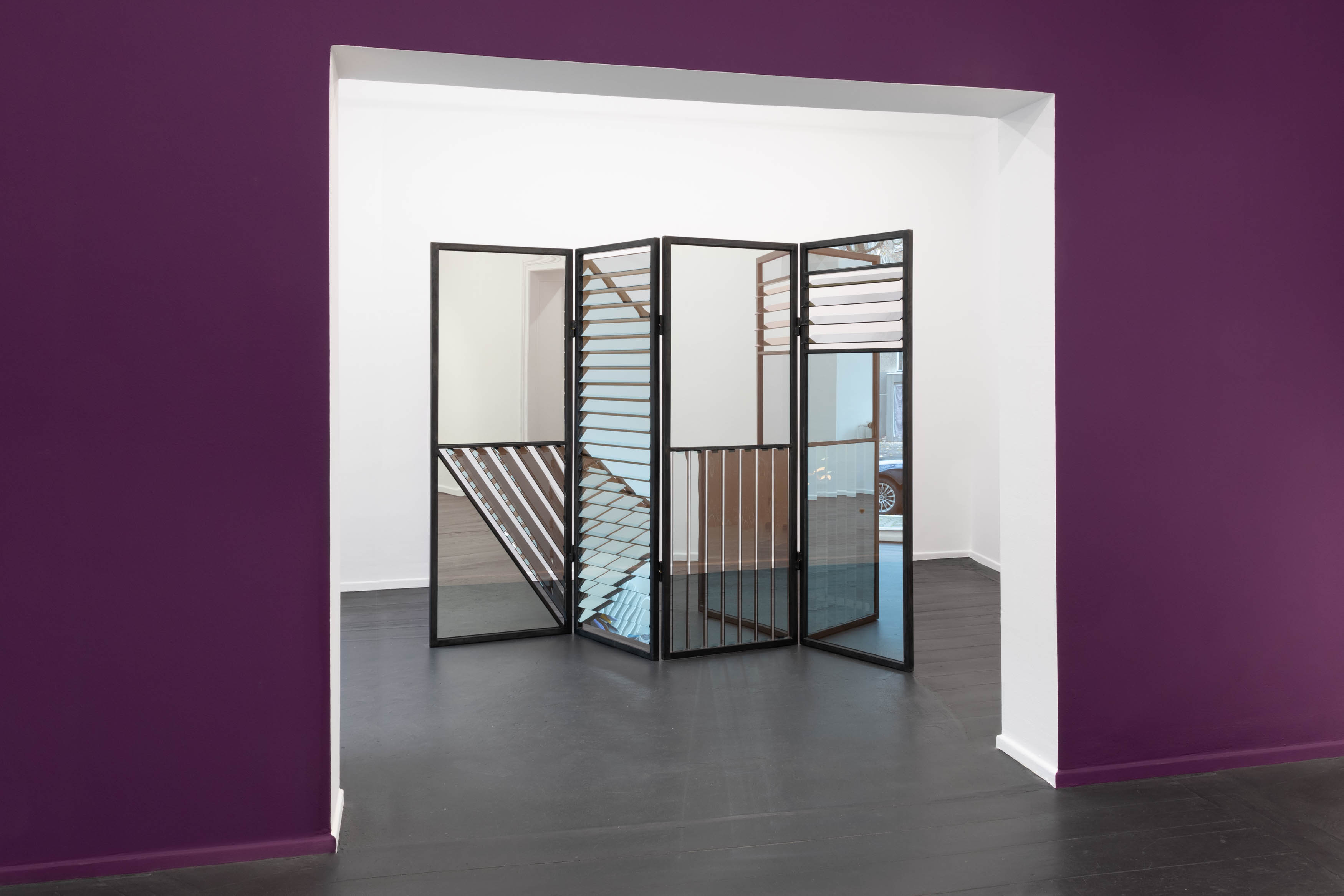
INSTALLATION VIEWS
-
Kapwani Kiwanga
Under the cover of darkness , 2019
-
Kapwani Kiwanga
Under the cover of darkness , 2019
-
Kapwani Kiwanga
Under the cover of darkness , 2019
-
Kapwani Kiwanga
Under the cover of darkness , 2019
-
Kapwani Kiwanga
Under the cover of darkness , 2019
-
Kapwani Kiwanga
Under the cover of darkness , 2019
-
Kapwani Kiwanga
Under the cover of darkness , 2019
-
Kapwani Kiwanga
Under the cover of darkness , 2019
-
Kapwani Kiwanga
Under the cover of darkness , 2019
WORKS
-
Kapwani Kiwanga
Jalousie, 2018
-
Kapwani Kiwanga
Glow 6, 2019
-
Kapwani Kiwanga
Glow 7, 2019
-
Kapwani Kiwanga
OBLIQUE (black), 2019
-
Kapwani Kiwanga
Greenbook, Vermont (1961), 2019
-
Kapwani Kiwanga
Greenbook, Oregon (1961), 2019
-
Kapwani Kiwanga
Greenbook, Ohio (1961), 2019
-
Kapwani Kiwanga
Greenbook, North Dakota (1961), 2019
-
Kapwani Kiwanga
Greenbook, Nevada (1961), 2019
-
Kapwani Kiwanga
Greenbook, Michigan (1961), 2019
-
Kapwani Kiwanga
Greenbook, Maine (1961), 2019
-
Kapwani Kiwanga
Greenbook, Louisiana (1961), 2019
-
Kapwani Kiwanga
Greenbook, Indiana (1961), 2019
-
Kapwani Kiwanga
Greenbook, District of Columbia (1961), 2019
-
Kapwani Kiwanga
Greenbook, Connecticut (1961), 2019
-
Kapwani Kiwanga
Greenbook, Colorado (1961), 2019
-
Kapwani Kiwanga
Greenbook, California (1961), 2019
-
Kapwani Kiwanga
Greenbook, Arizona (1961), 2019
-
Kapwani Kiwanga
Greenbook, Alabama (1961), 2019
PRESS RELEASE
Galerie Tanja Wagner is pleased to present Under the cover of darkness, the third solo exhibition by multidisciplinary artist Kapwani Kiwanga with the gallery.
The show presents different bodies of works by the artist, which examine racialized surveillance and controlling policies, as such as her in depth interrogation of dominant historical narratives in present times.
With the sculpture Jalousie, which Kiwanga constructed out of steel, two-way mirrors and shutters, the artist sophisticatedly conveys thoughts of surveillance through architecture. Demonstrating how power structures are shifting with the change of one’s position, the work simultaneously unveils how conditions of privacy and observation are generated through the materials one is surrounded by. As a permanent feature of colonial architecture, the application of louvers then subtly opens their historicality.
Taking up laws approved in 1713 in New York City Kiwanga’s latest work Glow ascertains a history of how those controlling mechanisms were applied to specific bodies in the past. The lantern laws forced Black and Indigenous enslaved people to carry a lit candle after dark, if not accompanied by a White person. In creating a series of four geometric black marble sculptures with implemented LED lights, of which two will be displayed at the exhibition, Kiwanga’s abstract construal of these laws is unambiguously decoding how bodies of exist in the state of controlled visibility.
How African-Americans subverted these structures of constant supervision is explored in the conceptual work Greenbook (1961), a series composed of 52 prints from the Negro Motorist Green Book. As a guide for African American Roadtrippers during the Jim Crow era it listed addresses and state names across the US, which were registered as safe for black travellers. Kiwanga’s prints are extracts of the 1961’s edition, the same year Black and White civil rights activists organised as Freedom Riders. Leaving out the names and focusing on the particular addresses and states only, Greenbook (1961) indicates how Black people developed their own navigation system, within which the criminalization of their bodies was repealed. The exhibition shows a selection of those 52 prints, which are documenting African-Americans’ persistent exertion of challenging their own resources to claim back their freedom to move.
Kapwani Kiwanga’s work often manifests as installations, sound, video, and performance. She engages with disregarded histories by creating space for marginalised perspectives, challenging the established parameters of predominant discourses on history and knowledge.
Kapwani Kiwanga was born in 1978 in Hamilton, Canada. She lives and works in Paris.
She studied Anthropology and Comparative Religion at McGill University in Montreal and Art at l’école des Beaux-Arts de Paris.
She has received the Frieze Artist Award in 2018 and was the laureate of the Sobey Art Award the same year.
Solo exhibitions (selected): 2020: Witte de With – Center for Contemporary Art, Rotterdam; Capture Photo Festival, Vancouver; Pasquart Kunsthaus Centre d’art, Biel; Le Crédac, Ivry-sur-Seine; 2019: MIT List Visual Arts Center, Cambridge, Massachusetts; The Southern Alberta Art Gallery, Lethbridge; LE PARVIS, Centre d’Art Contemporain, Ibos; Museé d’art de Joliette, Joliette; Artpace, San Antonio; Esker Foundation, Calgary; CLARK, Centre d’art et de diffusion, Montreal; Tramway, Glasgow International 2018; Glenhyrst Art Gallery of Brant, Brantford, Ontario; 2017: Or Gallery, Vancouver; Fondazione Sandretto Rebaudengo, Turin; The Power Plant, Toronto; Logan Center for the Arts, Chicago; 2016: La Ferme du Buisson Noisiel, France; 2015: South London Gallery, London; 2014: Jeu de Paume, Paris.
Group exhibitions (selected): 2020: Dhaka art summit, Vancouver; School of the Museum of Fine Arts at Tufts University/Tufts University Art Galleries, Medford; 2019: Le Cube – independent art room, Rabat; Toronto Biennial of Art; Musée Mohammed VI d’art moderne et contemporain, Rabat; MOMENTA, Biennale de l’image; Oakville Galleries in Gairloch Gardens & at Centennial Square, Oakville; MACBA – Museu d’Art Contemporani de Barcelona; Arsenal – Contemporary Art Contemporain, Montreal; Serpentine Galleries, London; Whitechapel Art Gallery, London; The Austin Contemporary, Austin; Albertinum, Dresden; 2018: Centre d’art contemporain de Meymac; LE PARVIS, Centre d’Art Contemporain, Ibos, Extra City Kunsthal, Antwerp; Yuz Museum Shanghai; National Gallery of Canada, Ottawa; Contemporary Arts Museum, Houston; CCA – Centre for Contemporary Art, Derry Londonderry; Dazibao, Montréal; ACUD Galerie, Berlin; Chapter Thirteen | Glasgow International 2018; The Contemporary Art Gallery, Vancouver; Hammer Museum, Los Angeles; 2017: Fonds régional d’art contemporain de Lorraine, Metz; Nordic Biennial of Contemporary Art, Sweden; Portikus, Frankfurt; The Power Plant Gallery, Durham, USA; Galerie Duchamp Centre d’Art Contemporain de la Ville d’Yvetot, France, Mac Val, Vitry-sur-Seine, France; Association pour la Promotion Scientifique de l’Afrique (ASPA), Paris; LE PARVIS – Centre d’art contemporain; Hartware MedienKunstVerein (HMKV), Dortmund; Centro Atlántico de Arte Moderno – CAAM, Las Palmas de Gran Canaria, Spain; Maison des arts de Laval, Quebec Accrochage; Centre Pompidou, Paris; diagonale, Montréal; Trinity Square Video, Toronto; Konsthall C, Hökarängen, Sweden; Meter Art Space, Copenhagen; Tate, Liverpool; 2016: The Showroom, London; Temporary Gallery, Cologne; EVA International Biennale, Limerick, Ireland; ApexArt, New York.
Galerie Tanja Wagner präsentiert Under the cover of darkness, die dritte Einzelausstellung der multidisziplinär arbeitenden Künstlerin Kapwani Kiwanga mit der Galerie.
Die Ausstellung zeigt verschiedene Werkgruppen der Künstlerin, welche Überwachungs- und Kontrollpolitiken untersucht, als auch ihr eindringliches Hinterfragen gegenwärtiger, dominanter historischer Narrativen.
Mit der Skulptur Jalousie, welche Kiwanga aus Stahl, Spionierspiegel und Rolläden konstruierte, vermittelt die Künstlerin anspruchsvoll Gedanken zur Überwachung durch Architektur. Aufzeigend wie Machtverhältnisse sich verschieben, sobald man seine Position verändert, enthüllt die Arbeit gleichzeitig auch wie Zustände von Privatheit und Überwachung durch die Materialien, die einen umgeben, generiert werden. Als ein fester Bestandteil kolonialer Architektur, eröffnet folglich die Anwendung der Lattenfenster, auf subtile Weise, die Historizität dieses Materials.
Mit dem Aufgreifen von Gesetzen, die 1713 in New York City erlassen wurden, erfasst Kiwangas jüngste Arbeit Glow wie diese Kontrollmechanismen bereits in der Vergangenheit an bestimmten Körpern angewendet wurden. Die lantern laws zwang Schwarze und Indigene versklavte Menschen dazu, bei Dunkelheit eine brennende Kerze bei sich zu tragen, sollten diese nicht in Begleitung einer Weißen Person sein. Die Anfertigung einer Serie von vier geometrischen, schwarzen Marmorskulpturen mit eingebauten LED-Lichtern, von denen zwei in der Ausstellung zu sehen sein werden, ist Kiwangas abstrakte Interpretation dieser Gesetze ein unmissverständliches Entschlüsseln, wie Körper im Zustand kontrollierter Sichtbarkeit existieren.
Wie Schwarze Amerikaner dieser Strukturen konstanter Beobachtung unterminierten wird in der konzeptuellen Arbeit Greenbook (1961) erforscht, eine Serie zusammengestellt aus 52 Drucken aus dem Negro Motorist Green Book. Als eine Anleitung für Schwarze amerikanische Autoreisende während der Jim Crow Ära, führte sie Adressen und Namen der Staaten auf, die als sicher für Schwarze Reisende registriert wurden. Kiwangas Drucke sind Auszüge der Edition von 1961, demselben Jahr in dem Schwarze und Weiße Bürgerrechtler sich als Freedom Riderszusammenschlossen. Durch das Entfernen jeglicher Namen und der Konzentration auf die einzelnen Adressen und Staaten zeigt Greenbook (1961) auf, wie Schwarze Menschen ihr eigenes Navigationssystem entwickelten, innerhalb derer die Kriminalisierung ihres Körpers aufgehoben wurde. Die Ausstellung zeigt eine Auswahl dieser 52 Drucke, welche die anhaltenden Anstrengungen Schwarzer Amerikaner dokumentieren, wie sie dabei ihre eigenen Ressourcen erschöpften, um ihr Anrecht auf Bewegungsfreiheit geltend zu machen.
Kapwani Kiwangas Arbeiten manifestieren sich häufig als Installationen, Sound, Video und Performance. Sie beschäftigt sich mit unberücksichtigten Geschichten, kreiert einen Raum für marginalisierte Perspektiven und fordert hierdurch etablierte Parameter vorherrschender Diskurse über Geschichte und Wissen heraus.
Kapwani Kiwanga wurde 1978 in Hamilton, Kanada geboren und studierte Anthropologie und vergleichende Religionswissenschaft an der McGill University in Montreal, als auch Kunst an der Les Beaux-Arts de Paris, Le Fresnoy. Sie lebt und arbeitet in Paris.
2018 wurde ihr der Frieze Artist Award verliehen sowie der Sobey Art Award.
Einzelausstellungen (Auswahl): 2020: Witte de With – Center for Contemporary Art, Rotterdam; Capture Photo Festival, Vancouver; Pasquart Kunsthaus Centre d’art, Biel; Le Crédac, Ivry-sur-Seine; 2019: MIT List Visual Arts Center, Cambridge, Massachusetts; The Southern Alberta Art Gallery, Lethbridge; 2018: Museé d’art de Joliette, Joliette; Artpace, San Antonio; Tramway, Glasgow International 2018; Esker Foundation, Calgary; CLARK, Centre d’art et de diffusion, Montreal; Glenhyrst Art Gallery of Brant, Brantford, Ontario; 2017: Or Gallery, Vancouver; Fondazione Sandretto Re Rebaudengo, Turin; Power Plant, Toronto; Logan Center for the Arts, Chicago; 2016: La Ferme du Buisson Noisiel, France; 2015: South London Gallery, London; 2014: Jeu de Paume, Paris.
Gruppenausstellungen (Auswahl): 2020: Dhaka art summit, Vancouver; School of the Museum of Fine Arts at Tufts University/Tufts University Art Galleries, Medford; 2019: Le Cube – independent art room, Rabat; Toronto Biennial of Art; Fondation d’Entreprise Ricard, Paris; Musée Mohammed VI d’art moderne et contemporain, Rabat; MOMENTA, Biennale de l’image; Oakville Galleries in Gairloch Gardens & at Centennial Square, Oakville; MACBA – Museu d’Art Contemporani de Barcelona; Arsenal – Contemporary Art Contemporain, Montreal; Serpentine Galleries, London; Whitechapel Art Gallery, London; The Austin Contemporary, Austin; Albertinum, Dresden; 2018: Yuz Museum Shanghai; National Gallery of Canada, Ottawa; Extra City Kunsthal, Antwerp; Contemporary Arts Museum, Houston; CCA – Centre for Contemporary Art, Derry Londonderry; Dazibao, Montréal; ACUD Galerie, Berlin; Chapter Thirteen | Glasgow International; The Contemporary Art Gallery, Vancouver; Hammer Museum, Los Angeles; 2017: Fonds régional d’art contemporain de Lorraine, Metz; Nordic Biennial of Contemporary Art, Sweden; Portikus, Frankfurt; Power Plant Gallery, Durham, USA; Galerie Duchamp Centre d’Art Contemporain de la Ville d’Yvetot, France, Mac Val, Vitry-sur-Seine, France; Association pour la Promotion Scientifique de l’Afrique (ASPA), Paris; LE PARVIS – Centre d’art contemporain; Hartware MedienKunstVerein (HMKV), Dortmund; Centro Atlántico de Arte Moderno – CAAM, Las Palmas de Gran Canaria, Spain; Maison des arts de Laval, Quebec Accrochage; Centre Pompidou, Paris; diagonale, Montréal; Trinity Square Video, Toronto; Konsthall C, Hökarängen, Sweden; Meter Art Space, Copenhagen; Tate, Liverpool; 2016: The Showroom, London; Temporary Gallery, Cologne; EVA International Biennale, Limerick, Ireland; ApexArt, New York









